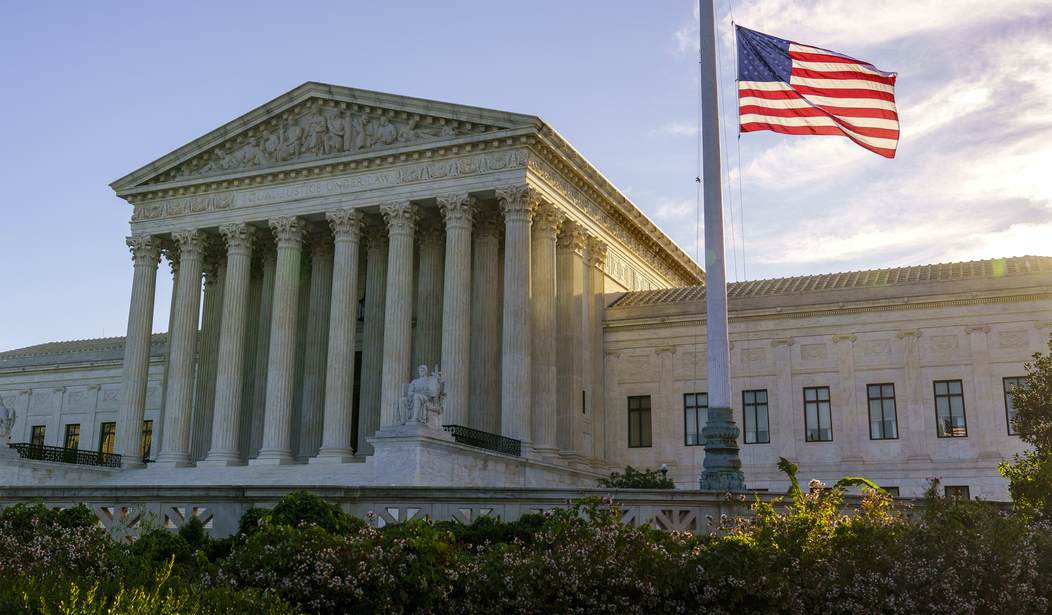A unanimous U.S. Supreme Court case on religious liberty from earlier this month, Catholic Charities Bureau v. Wisconsin Labor & Industry Review Commission, is already having an affect on other cases. On Monday, the Court ordered courts in New York to reconsider Diocese of Albany v. Harris in light of the Catholic Charities case. The case out of New York has to do with the state's abortion mandate, which has forced Catholic and Anglican nuns, as well as Catholic dioceses, Christian churches, and faith-based social ministries to fight in court to not have to pay for employees' abortions.
Becket, which represented Catholic Charities, had more to say about the ruling in favor of Catholic nuns, including the legal path of these cases and how anti-religious New York has been [emphasis original]:
...After New York courts declined to protect the faith groups, Becket and Jones Day asked the Supreme Court to step in. In 2021, the Justices reversed the lower courts’ rulings and told them to reconsider the case, but the courts ignored that instruction. Now the Supreme Court has ordered the New York courts to go back to the drawing board. (Watch this short video to learn more). Last week, New York admitted that its scheme could not stand as written based on the Supreme Court’s recent decision in favor of Catholic Charities Bureau.
When the New York State Department of Financial Services initially proposed the abortion mandate for health care plans, it promised to exempt all employers with religious objections. But after facing pressure from abortion activists, New York narrowed the exemption to cover only religious groups that primarily teach religion and primarily serve and hire those who share their faith. This exception does not apply to many religious ministries—including the ministries challenging the mandate here—because they serve all people, regardless of faith. For example, the exemption doesn’t extend to the Carmelite Sisters for the Aged and Infirm and their Teresian Nursing Home because they serve the elderly and dying regardless of religious affiliation.
“New York wants to browbeat nuns into paying for abortions for the great crime of serving all those in need,” said Eric Baxter, vice president and senior counsel at Becket. “For the second time in four years, the Supreme Court has made clear that bully tactics like these have no place in our nation or our law. We are confident that these religious groups will finally be able to care for the most vulnerable consistent with their beliefs.”
After New York courts refused to protect religious organizations targeted by New York’s mandate, they asked the Supreme Court to take their case. In 2021, the Court reversed the New York state courts and told them to reconsider the case in light of Becket’s landmark victory in Fulton v. City of Philadelphia. But the state courts found Fulton inapplicable, forcing the religious groups back to the Supreme Court once again. Last week, the Supreme Court ruled unanimously in Catholic Charities, which says that government cannot use schemes like New York’s to discriminate among religious people. Today the Justices directed the New York courts to reconsider the case in light of that ruling.
“Religious groups in the Empire State should not be forced to provide insurance coverage that violates their deeply held religious beliefs,” said Noel J. Francisco, partner-in-charge of Jones Day’s Washington office. “We are confident that New York will finally get the message and stop discriminating against religious objectors.”
The case will immediately return to the New York Court of Appeals.
Recommended
The rather liberal state Supreme Court in Wisconsin found against Catholic Charities because they served too many people who weren't also Catholic. The pro-abortion state of New York similarly constricted those groups who dared to serve non-Catholics.
"Last week, the Supreme Court ruled unanimously in Catholic Charities, which says that government cannot use schemes like New York’s to discriminate among religious people. Today the Justices directed the New York courts to reconsider the case in light of that ruling," Becket also pointed out, which should be promising for Catholic nuns.
If this story sounds familiar, it's because the Court has repeatedly ruled for Catholics and other religious plaintiffs when it comes to abortion and contraception mandates, and has been doing so for over 10 years now, including the Hobby Lobby case in 2014, to Little Sisters of the Poor in 2020.
In this particular case of Diocese of Albany v. Harris, Becket highlights how the legal battle goes back to 2017, which also involves the Court finding for these nuns, and shows how relentless the pro-abortion movement can be:
Pushing the envelope beyond the contraceptive mandate
In 2011, the United States Department of Health and Human Services ordered employers to cover controversial contraceptives and abortifacients in their health care plans or face crippling fines. Immediately challenges were mounted by religious universities, Christian businesses and, most famously, by the Little Sisters of the Poor—an order of Catholic nuns who dedicate their lives to serving the elderly poor. Three times the Supreme Court ruled in favor of the Little Sisters of the Poor, saying that if the government wanted to provide contraceptives and abortifacients, it could not force the nuns to help.
But in 2017, when the Little Sisters of the Poor were already two Supreme Court victories into their decade-long legal battle over the contraceptive mandate, the State of New York went a step further and required employers statewide to cover not just abortifacients, but even surgical abortions in their health plans.
...
Standing up for the right to stand aside
...
Each group is challenging New York’s abortion mandate because it believes that life begins at the moment of conception, and that to intentionally end the life of an unborn child is a grave moral sin. However, unless they receive protection in court, these orders, ministries, and churches will either have to violate their deepest religious convictions and provide abortions, or eliminate their employees’ health insurance altogether, which would subject them to crippling fines totaling millions of dollars per year.
Seeking relief from the High Court
On April 23, 2021, represented by Becket and Jones Day, the coalition of religious organizations asked the U.S. Supreme Court to hear its case. The Supreme Court granted the petition, vacated the bad rulings from the New York state courts, and told the state courts to reconsider the case in light of Becket’s other landmark victory in Fulton v. City of Philadelphia . The New York Court of Appeals reconsidered the case, and on May 21, 2024, the court failed to protect the religious groups and again upheld the abortion mandate. On September 17, 2024, the decision was appealed to the Supreme Court.
Just like the Supreme Court found that the government must find a way to provide contraception that doesn’t involve the Little Sisters of the Poor, so too must the court step in and protect these religious organizations from having to violate their deepest moral convictions by participating in abortions.
The Court has sent out another directive for New York courts. We'll see if they actually get the message this time.
























Join the conversation as a VIP Member